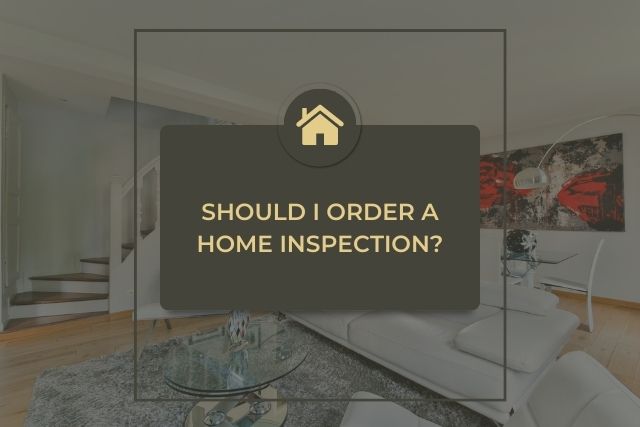Are you a renter who’s just received notice that your apartment complex will be conducting an insurance inspection? If so, you may be wondering what this means, what to expect, and how it will impact your living situation. In this article, we’ll explore the world of apartment insurance inspections and provide you with all the information you need to know to prepare for the inspection.
We’ll cover the reasons why apartment complexes conduct these inspections, what inspectors are looking for, and how you can ensure that your apartment is in compliance with insurance requirements.
By the end of this article, you’ll have a better understanding of the apartment insurance inspection process and be prepared to make any necessary changes to your living space.
So, whether you’re a first-time renter or a seasoned pro, let’s dive into the world of apartment insurance inspections and get you ready for your next inspection!
Table of Contents
Understanding Apartment Insurance Inspection
Apartment insurance inspection is a process that landlords and property managers use to assess the condition of rental units. During an apartment insurance inspection, an inspector will typically examine a variety of factors, including the condition of the building’s structure, electrical systems, plumbing, and other essential components.
One of the primary reasons for conducting an apartment insurance inspection is to ensure that the rental property is safe and habitable for tenants. This inspection also helps to identify any potential hazards that could lead to property damage or injury.
During the inspection, the inspector will typically document any issues or concerns that they find in a report. This report will then be used by the landlord or property manager to make necessary repairs or improvements to the rental unit.
Tenants should be aware that apartment insurance inspections are typically conducted periodically, usually once a year or every two years. While tenants are not responsible for the cost of the inspection, they are responsible for ensuring that the rental unit is clean and free from clutter to allow the inspector to conduct a thorough examination.
The Importance of Apartment Insurance Inspection
Apartment insurance inspection is an essential step in protecting your property and ensuring that you are adequately covered in case of any unforeseen events. It is a process that involves a thorough examination of your apartment to identify potential hazards and risks that could lead to damage or loss. This section will discuss the importance of apartment insurance inspection in detail.
One of the primary reasons why apartment insurance inspection is crucial is that it helps you identify potential risks and hazards in your apartment. These risks could include faulty electrical wiring, gas leaks, or water damage. By identifying these risks early on, you can take the necessary steps to address them and prevent any damage or loss.
Another critical reason why apartment insurance inspection is essential is that it helps you ensure that you have adequate insurance coverage. Your insurance policy may not cover certain risks or hazards that are present in your apartment. By identifying these risks during the inspection, you can work with your insurance provider to ensure that you have the right coverage to protect your property.
Additionally, apartment insurance inspection can help you save money in the long run. By identifying potential hazards and risks, you can take steps to address them before they cause any damage or loss. This can help you avoid costly repairs or replacements down the line.
What Inspectors Look For
Structural Integrity
When conducting an apartment insurance inspection, the inspector will thoroughly examine the structural integrity of the building. This includes checking for any cracks, leaks, or damage to the walls, floors, and ceilings. The inspector will also inspect the foundation of the building to ensure that it is stable and secure. In addition, the inspector will check for any signs of water damage or mold growth, which can compromise the safety and livability of the apartment.
Safety Features
Inspectors will also look for safety features that are required by law in apartment buildings. This includes smoke detectors, carbon monoxide detectors, fire extinguishers, and emergency exit signs. The inspector will ensure that these safety features are present and in good working condition. They will also check that the apartment has a clear and unobstructed path to the building’s emergency exits.
Potential Risks
Finally, inspectors will look for potential risks that could lead to accidents or injuries. This includes loose electrical wiring, broken windows, and uneven flooring. The inspector will also check that all appliances, such as stoves and refrigerators, are in good working condition and do not pose a risk to the occupants of the apartment. If any potential risks are identified, the inspector will make recommendations to the landlord or property manager on how to address them.
The Inspection Process
Pre-Inspection
Before the inspection, the apartment owner or manager will notify the tenant of the scheduled date and time. The tenant should prepare the apartment by cleaning and organizing it. They should also ensure that all safety features, such as smoke detectors and carbon monoxide detectors, are functioning correctly.
The tenant should also review their apartment insurance policy to ensure that they have adequate coverage. If necessary, they should contact their insurance provider to make any changes.
During Inspection
During the inspection, the inspector will examine the apartment for any safety hazards, such as faulty wiring or blocked fire exits. They will also check for any damage to the apartment, such as holes in the walls or broken windows.
The inspector will also verify that the tenant has the required safety features, such as smoke detectors and fire extinguishers. They will also ensure that the apartment meets any local or state safety codes.
Post-Inspection
After the inspection, the tenant will receive a report detailing any safety hazards or damage found in the apartment. The report may also include recommendations for improving the apartment’s safety.
If the inspector finds any safety hazards, the apartment owner or manager will need to address them promptly. The tenant should also review their apartment insurance policy to ensure that they have adequate coverage for any potential hazards.
Dealing with Inspection Results
After an apartment insurance inspection, tenants may receive a report outlining any issues found in their unit. It is important to review the report carefully and understand the severity of each issue.
If the report identifies minor issues, such as a loose doorknob or a small stain on the carpet, tenants may be able to address these themselves. However, if the report identifies more serious issues, such as a leaky pipe or faulty electrical wiring, tenants should contact their landlord or property management company immediately.
Tenants should also be aware of any deadlines or timelines for addressing the issues identified in the report. Failure to address these issues in a timely manner could result in fines or other penalties.
In some cases, tenants may need to make temporary arrangements while repairs are being made. For example, if a leaky roof is identified, tenants may need to temporarily move to another unit while the repairs are being made. It is important to discuss these arrangements with the landlord or property management company to ensure that they are reasonable and appropriate.
Tips for a Successful Apartment Insurance Inspection
When preparing for an apartment insurance inspection, there are a few things that tenants can do to ensure a successful outcome. Here are some tips to keep in mind:
- Clean and declutter: A tidy apartment is not only more visually appealing, but it also makes it easier for the inspector to do their job. Make sure to clean and declutter all areas of the apartment, including closets and cabinets.
- Check appliances: Inspectors will likely check the condition and functionality of appliances such as stoves, refrigerators, and water heaters. Make sure these appliances are clean and in good working order.
- Document any damage: If there is any damage to the apartment, such as a cracked tile or a hole in the wall, document it and inform the inspector. This can help avoid any misunderstandings or disputes later on.
- Know your policy: Familiarize yourself with your insurance policy and what it covers. This can help you better understand what the inspector will be looking for and what you need to do to prepare.
- Be present during the inspection: It’s a good idea to be present during the inspection so you can answer any questions the inspector may have. This can also help ensure that any issues are addressed in a timely manner.
By following these tips, tenants can help ensure a successful apartment insurance inspection.
Common Misconceptions about Apartment Insurance Inspection
Apartment insurance inspections are often misunderstood, and there are many misconceptions surrounding them. Here are a few common misconceptions that people have about apartment insurance inspections:
Misconception 1: Apartment Insurance Inspections Are Not Necessary
Some people believe that apartment insurance inspections are not necessary, and that they are just a way for insurance companies to make more money. However, apartment insurance inspections are important because they help to identify potential hazards and risks that could lead to damage or injury. By identifying these risks early on, apartment owners and managers can take steps to prevent them from becoming bigger problems down the road.
Misconception 2: Apartment Insurance Inspections Are Invasive
Another common misconception about apartment insurance inspections is that they are invasive and intrusive. However, apartment insurance inspections are usually non-invasive and do not require any major changes to the apartment. Inspectors may take a few pictures and measurements, but they do not need to tear down walls or make major modifications to the apartment.
Misconception 3: Apartment Insurance Inspections Are Only for New Apartments
Some people believe that apartment insurance inspections are only necessary for new apartments or buildings. However, apartment insurance inspections are important for all apartments, regardless of their age. Even older apartments can have potential hazards and risks that need to be identified and addressed.
Misconception 4: Apartment Insurance Inspections Are Expensive
Finally, some people believe that apartment insurance inspections are expensive and not worth the cost. However, apartment insurance inspections are usually affordable and can even save apartment owners and managers money in the long run. By identifying potential hazards and risks early on, apartment owners and managers can take steps to prevent them from becoming bigger problems that could be more expensive to fix later on.
Conclusion
In conclusion, apartment insurance inspections are an important aspect of maintaining a safe and secure living environment. By conducting regular inspections, landlords and tenants can identify potential hazards and take necessary steps to address them before they become a major issue.
During an inspection, it is important to be thorough and take note of any potential hazards. This includes checking for fire hazards, electrical issues, and other safety concerns. By addressing these issues promptly, landlords and tenants can help prevent accidents and injuries.
It is also important to note that apartment insurance inspections are not only beneficial for safety reasons, but they can also help save money in the long run. By identifying potential hazards early on, landlords and tenants can avoid costly repairs and insurance claims.
Overall, apartment insurance inspections are a necessary part of maintaining a safe and secure living environment. By being proactive and conducting regular inspections, landlords and tenants can help prevent accidents and injuries, save money, and ensure that their apartment is a safe and comfortable place to live.







